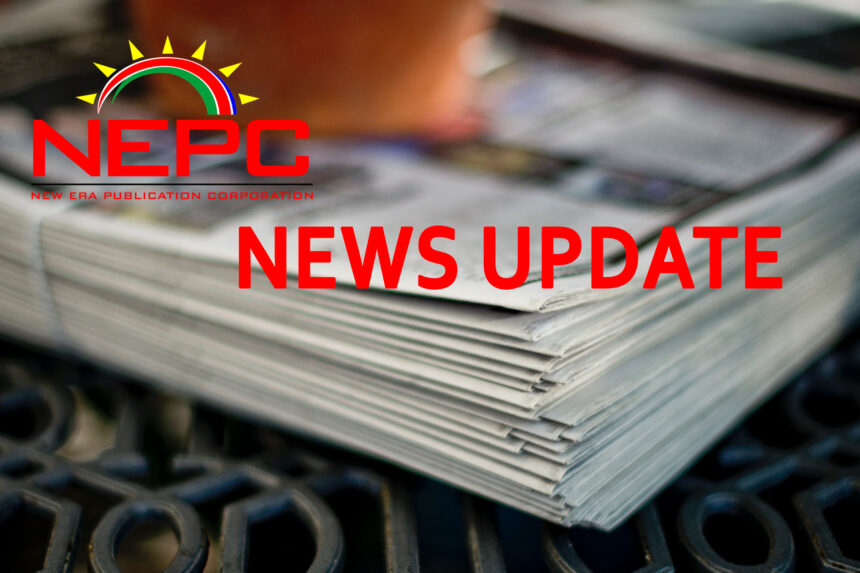By Frederick Philander
WINDHOEK
“As I studied Languages as a science, namely Linguistics up to Doctoral or Ph.D level, my fascination with languages has never ceased.”
So said the deputy minister of Education, Dr. Becky Ndjoze-Ojo, during a recently-held Library Reading Day in the capital. The event was made financially possible by the American Cultural Centre.
“I have come to the conclusion that language is not only the most powerful tool the Homo sapiens uniquely possess, but simultaneously the most interesting and adaptable vehicle they have to use infinitely until mortality and perhaps beyond,” Ndjoze-Ojo said.
According to her, language is generally studied as consisting of four main skills, namely: listening, speaking, reading and writing.
“My analogy has always been that we as Homo sapiens, except in very exceptional cases, are born to speak. We are thus born to cry at birth to show we are alive. Then we go into a moment of silence; during this process of silence, we listen to speak! Then later, after listening carefully, we speak to read,” she said at the event that was attended by a large crowd of people.
She added:”Once this cycle is completed, we live to use Language infinitely to create, re-create and innovate until mortality catches up with us. In deed, Homo sapiens are thinking but mortal beings. However, the most interesting thing about us is the fact that we have the ability, the capacity and the capability to learn infinitely. Hence, the assertion that education takes, should and must take us from the cradle to the grave.”
Research has shown that reading is crucial to a child’s brain development and intellectual stimulation.
“It is therefore, the most important skill there is that is just the beginning of innovation. In fact, without reading skills, there is little or no intellectual capacity building. Reading is thus regarded as a gateway skill that opens the door to all other learning. Reading is the foundation on which language skills and better thinking strategies for creative innovation are built.”
In her view, by becoming more familiar with language through reading, students build a rich vocabulary and an ability to express themselves clearly and creatively.
“Reading is the processing of information that requires the students and all of us to develop a capacity for conceptual thinking, namely: an ability to think about dissecting nature according to laid-down rules by our native languages. Therefore, effective teaching of reading skills must start from the known to the unknown; in other words, from the mother tongue to the foreign tongue; from the national to the regional and from the international language to the universal,” she told the crowd.
In actual fact, by deciphering words, sentences, themes and meaning, by concentrating, conceptualizing and visualizing, we employ these elements as various reading strategies to expand our ability to think and thereby to dissect nature according to rules laid down by our languages.
“Reading is an active discipline. Students learn to choose what they read, and when they read they learn to discipline themselves to concentrate on the written word and, as we all know, the power of the written word cannot be over-emphasized,” she said of the skill which, in her opinion, educators should encourage learners to make use of libraries.
“We ought to make sure that everyone in our family has a library card and that children are helped on how best to use the library’s resources: card catalogues, computer systems, best-seller sections, etc. We must read every day We need to create habits and set aside time each day for everyone to read either books, magazines, newspapers, letters. You can even begin by reading television listings, then discussing what you will watch together, and why,” the deputy minister asserted.
She concluded with the following practical reading advice:
“We need to talk about reading and share with friends and family what we are reading. Children need to see adults reading frequently. They also need to know the benefits of reading. Talk to your children, grandchildren, nieces and nephews, even young neighbours about what you’re reading. Tell them how much you have enjoyed it, what you have learned, and how you have been inspired.
“Ask about summer reading materials. Some schools call this a holiday reader. Schools and libraries often provide summer reading lists that highlight excellent books which are readily available, popular and consistent with grade-level reading skills. Call your school or library for information.
Make reading materials part of your home. Buy books at bookstores and tag sales. Borrow books from the library and from friends. Subscribe to newspapers and magazines. Read, read and read!


